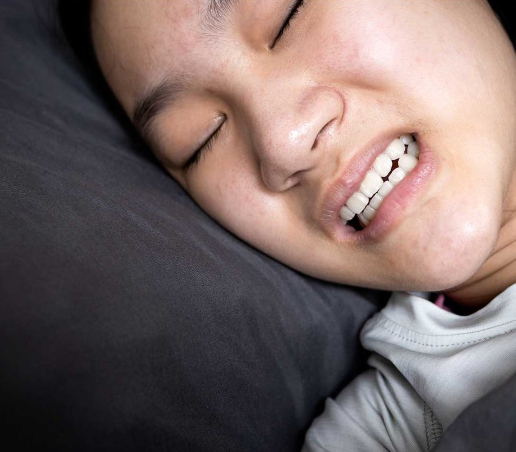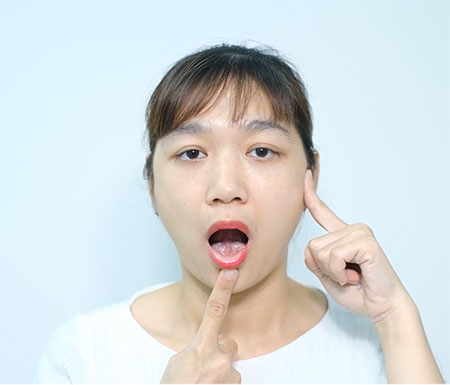Teeth grinding, also known as bruxism, is a common but often overlooked issue. Many people are unaware that they grind their teeth at night, yet this condition can lead to significant dental problems and health issues. From headaches to jaw pain and even damaged teeth, bruxism can affect your overall well-being if left untreated. Luckily, there are natural methods to help reduce or stop teeth grinding during sleep. Let’s dive into eight ways you can tackle this problem and enjoy more restful nights.
What Is Teeth Grinding and Why Does It Happen?

Teeth grinding typically occurs during sleep, when you involuntarily clench, grind, or gnash your teeth. It can be triggered by several factors, including stress, anxiety, sleep disorders, and even misaligned teeth (malocclusion). Although it happens unconsciously, its effects are noticeable: jaw pain, headaches, worn teeth, and even disrupted sleep.
By understanding the root causes of teeth grinding, you can take steps to manage or eliminate it altogether. Fortunately, natural remedies are available, and many of them focus on reducing stress, improving sleep habits, and maintaining overall oral health.
Identifying the Symptoms of Teeth Grinding
Teeth grinding can be tricky to detect, especially since it happens while you sleep. However, certain symptoms may clue you in:
- Persistent jaw pain or discomfort
- Frequent headaches, especially in the morning
- Earaches or tightness in the facial muscles
- Increased tooth sensitivity or visible wear on your teeth
- Disrupted sleep or sore gums
If any of these symptoms sound familiar, you may be grinding your teeth at night. Early detection and intervention are key to preventing further damage. So, let’s explore some natural solutions that can help you break the habit.
1. Adopt a Relaxing Nighttime Routine
Stress is a major trigger for teeth grinding, and reducing stress before bed can make a significant difference. Establishing a calming pre-sleep routine is one of the best ways to promote relaxation and minimize nighttime grinding.
Consider these activities to help you wind down:
- Take a warm bath or shower to relax your muscles.
- Read a book or listen to calming music to distract your mind from daily stressors.
- Practice deep-breathing exercises or gentle yoga to ease tension.
By creating a peaceful atmosphere before bed, you’re setting the stage for restful sleep and helping reduce the likelihood of grinding your teeth.
2. Practice Stress Management Techniques
Since teeth grinding is often linked to stress and anxiety, finding effective ways to manage these feelings is crucial. Incorporating stress-reducing techniques into your daily routine can help you relax and reduce nighttime bruxism.
Here are some tried-and-true stress management methods:
- Mindfulness Meditation: A few minutes of meditation each day can help you stay present and calm.
- Progressive Muscle Relaxation: This technique involves tensing and relaxing muscle groups to relieve tension.
- Journaling: Writing down your thoughts and worries can help you process them and clear your mind before bed.
The more you reduce daily stress, the less likely you are to clench your jaw while sleeping.
3. Consider Herbal Remedies for Relaxation

Herbs have long been used to promote relaxation and improve sleep quality, which can help prevent teeth grinding. Certain herbal teas and supplements can naturally calm your nervous system and prepare you for a peaceful night’s rest.
Try these herbal remedies:
- Valerian Root: Known for its calming effects, valerian root can help you relax and improve sleep.
- Chamomile Tea: Sipping on chamomile tea before bed is a gentle way to unwind and prepare for sleep.
- Passionflower: This herb can reduce anxiety and improve the quality of your sleep.
Incorporating these natural remedies into your nightly routine can help reduce stress and promote relaxation, ultimately curbing teeth grinding.
4. Modify Your Sleep Position
Believe it or not, your sleeping position can impact whether you grind your teeth at night. Certain positions put more stress on your jaw, increasing the likelihood of bruxism. Adjusting your sleeping posture can help alleviate jaw tension and reduce grinding.
To minimize stress on your jaw, it’s recommended to:
- Sleep on your back or side, as these positions are gentler on the jaw.
- Use supportive pillows to keep your head and neck aligned, reducing strain on your muscles.
Avoid sleeping on your stomach, as this position often forces your jaw into an unnatural position, which can worsen grinding.
5. Avoid Stimulants Before Bedtime

Stimulants such as caffeine, nicotine, and alcohol can interfere with your nervous system and disrupt your sleep cycle. They can also exacerbate teeth grinding by increasing muscle activity during sleep. To improve your chances of a restful night and reduce bruxism, try to limit or avoid these substances in the hours leading up to bedtime.
- Caffeine: Cut back on coffee, tea, and soda, especially in the afternoon and evening.
- Nicotine: Smoking before bed can stimulate your nervous system and contribute to restless sleep.
- Alcohol: While alcohol may make you feel sleepy, it can disrupt your sleep cycle and worsen teeth grinding.
Opt for herbal teas or warm water instead, as these alternatives promote relaxation and improve sleep quality.
6. Explore the Use of Mouthguards
Mouthguards are a popular solution for preventing teeth grinding. These devices act as a protective barrier between your upper and lower teeth, reducing the damage caused by grinding during sleep.
There are two types of mouthguards to consider:
- Over-the-Counter Mouthguards: These are affordable and readily available but may not fit as comfortably.
- Custom-Fitted Mouthguards: A dentist can create a mouthguard tailored to your teeth, offering a more comfortable and effective solution.
Wearing a mouthguard while you sleep can help protect your teeth and jaw from the long-term effects of bruxism.
7. Try Jaw Exercises and Muscle Relaxation

Jaw exercises can strengthen the muscles surrounding your jaw and reduce the tension that leads to grinding. By regularly performing these exercises, you can train your jaw muscles to relax and prevent clenching at night.
Here are a few simple exercises:
- Gently open and close your mouth, being mindful not to force any movements.
- Massage your jaw muscles in a circular motion to ease tension.
- Stretch your neck and facial muscles to promote relaxation.
These exercises, when performed regularly, can improve muscle coordination and help break the habit of teeth grinding.
8. When to Seek Professional Help

If you’ve tried several natural remedies and still experience persistent teeth grinding, it may be time to consult a professional. A dentist or sleep specialist can evaluate your condition and recommend advanced treatments, such as cognitive-behavioral therapy (CBT), dental corrections, or prescription medications.
Don’t wait too long to seek professional advice, as untreated bruxism can lead to serious dental problems like tooth fractures, jaw disorders, and even chronic headaches.
Conclusion
Teeth grinding, or bruxism, can cause significant discomfort and long-term damage if not addressed. However, by adopting these natural remedies, from stress management to jaw exercises and mouthguards, you can reduce or even stop teeth grinding altogether. It’s all about consistency and patience. If natural methods don’t seem to be working, don’t hesitate to seek professional guidance to protect your oral health and overall well-being.


